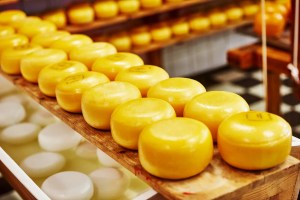Use the information on this page to help answer questions in the Supplier Questionnaire for Food Fraud Advisors’ Vulnerability Assessment Tool:
Trading properties
Raw materials traded on specific properties are those for which the price paid for this raw material is based upon the content of water, dairy fat, nitrogen (protein), cocoa solids or some other key component. Answer ‘yes’ here if
- the price your business pays is dependent on a specific property of this raw material or
- if any of your suppliers’ suppliers price this material according to a specific property, even if your business pays a flat rate.
If you are unsure, speak to your purchasing officer.
Direct Sourcing
Answer ‘yes’ in the Supplier Questionnaire if this material or ingredient is manufactured, produced, grown or slaughtered by the business you work for. For fish and seafood, answer ‘yes’ if your business is the first on-shore processing facility. Answer ‘no’ if the material is purchased from a distributor or importer, trader, broker, wholesaler or retailer.
Complexity of supply chain
Do you consider the supply chain of this material to be complex and/or long? An example of a short supply chain is wheat flour purchased directly from a flour mill that processes locally grown wheat. A complex supply chain is one that involves many different businesses handling, processing, storing and transporting a product and its component parts. Most imported materials have a long and complex supply chain.
Ease of access to material
Is the supply chain of a type that allows multiple points of entry for fraudulent material? Entry points for fraudulent materials are points in the supply chain at which a motivated person could adulterate or dilute the material or substitute an inauthentic material in its place. These points are most likely to be places where the material is blended, mixed, ground or where it is stored or transported in a manner that would allow a motivated person to easily gain access to the material.
Price
If the purchase price is more than USD20 per kg or USD20,000 per metric tonne or EUR18 per kg or 18,000 per metric tonne answer ‘yes very expensive’
If the purchase price is less than EUR600 or USD650 per metric tonne, answer ‘no’.
Size of market
Does the international market for this material have a large monetary value? Materials that have markets with large monetary values are those that are traded in very large quantities across many countries or materials that are very expensive. Tea, coffee, cocoa, sugar all have markets with a large monetary value.
Form of Ingredient
Answer ‘yes’ in the Supplier Questionnaire if this material or ingredient is sold to your customer in individual pieces which can be visually identified as such. Examples include chickpeas, whole peppers, chicken wings, bananas, frozen berries, rolled oats, coffee beans, whole cloves. If this material is sold as a powder, liquid, mince, paste, pre-mix, slurry or blend then answer ‘no’.
Special criteria
Answer ‘yes’ here if there are special criteria for this raw material or ingredient such as halal, organic, non-GMO, grass-fed, free-range or if there is a specific country of origin or grade of produce required for this material.
Availability of adulterants or substitutes
An example of a material that has easily available adulterants is honey, which can be adulterated with water, sugar syrups, invert syrups, all of which are easy to obtain.




